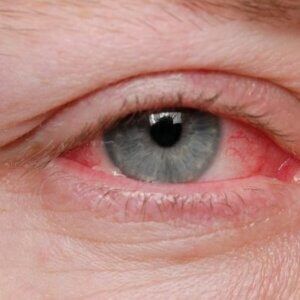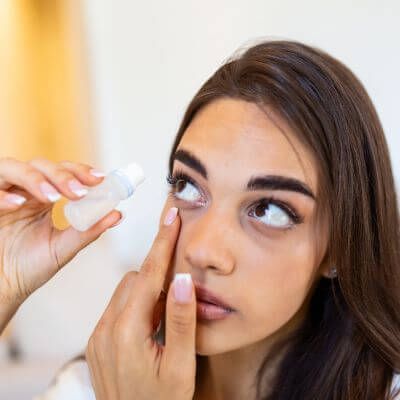Why Is Pink Eye More Common During Cold and Flu Season?
*This post was updated in November 2021
Cold and flu season is bad enough, but a case of pink eye can make it even worse. It’s is a common eye infection that causes inflammation of the thin membrane that coats the whites of your eyes (the conjunctiva ) and the inside lining of the eyelids. You’ll need to know the steps you can take to avoid it, as well as what to do if you contract an infection.
Pink eye is more common in cold and flu season due to an increased risk of direct contact and lack of sunlight, which can negatively affect your immune system. You can get it by touching your eye, coming in contact with someone who has it, or picking it up from an infected surface. Symptoms include redness, itchiness, and watery eyes.
You can prevent infection by washing your hands, using hand sanitizer, and avoiding touching your eyes. Talk to your doctor about treatment since different forms of conjunctivitis require different forms of treatment.
Why Pink Eye Is More Common During Cold and Flu Season
Pink eye, or conjunctivitis , can happen any time of year. However, it’s much more common in winter for the same reason that the cold and flu are — direct contact .
You can contract an infection by touching your eyes after:
- Not washing your hands
- Coming into physical contact with someone who has it
- Touching a surface someone who’s infected has already touched
This also means that it’s much easier for you to spread it yourself. You can spread it to others through direct contact or from one eye to the other if you touch your eye without washing first.
Lack of sunlight is another important factor for developing pink eye during winter. The sun’s rays help your body create vitamin D, which is vital for having a healthy immune system. Conjunctivitis can occur when your body’s natural defenses have been weakened. This is also what helps respiratory infections such as the common cold be more prevalent during winter.
Signs and Symptoms of Conjunctivitis
Symptoms of conjunctivitis are similar regardless of the time of year. Common symptoms include:

- Redness
- Eyes that sting, burn, or feel itchy
- Swollen eyelids
- Watery or teary eyes
- Eye discharge
There are different types of eye infections that have similar symptoms to pink eye. Our team can help determine the cause of your symptoms and get you the treatment you need to feel better again.
For more on the connection between winter and conjunctivitis, click here !
How to Prevent Pink Eye During Winter
Preventing a winter bout of pink eye or other types of eye conditions is the same as preventing the cold or flu. The key is to:
- Avoid touching your eyes
- Wash your hands throughout the day
- Use hand sanitizers when you don’t have access to soap and running water
Following these tips will help you avoid developing an infection and spreading it to others.
Click here to learn more about different types of eye infections!
Pink Eye Treatment
It’s important to get your eyes checked by your eye doctor if you think you have an infection. Most cases are caused by viruses ( viral conjunctivitis ), which aren’t helped by antibiotics and will run their course naturally. However, you need medical advice for bacterial cases ( bacterial conjunctivitis ) that do require treatment.
Pink eye-related to allergies ( allergic conjunctivitis ), can be treated with:
- Antihistamines
- Mast cell stabilizers
- Anti-inflammatories
Talk to your doctor about over-the-counter eye drops and other medications that may be effective. Your doctor will be able to give you proper guidance on whether you need something stronger or not.
This infection can also be the result of eye makeup . In this case, avoid using makeup around your eyes for a while. You should also throw out any makeup older than four months and clean your brushes and applicators. Avoid getting makeup in your eye since this can lead to infection or scratching the eye.
Do you have symptoms of pink eye? Contact us today to schedule your appointment!
Pink eye during winter is caused by increased cases of direct contact and less sunlight. It’s spread by touching your eye, coming into contact with someone else who has it, or from infected surfaces. Eyes that are red, itchy, and watery are common symptoms. To prevent infection, clean your hands with soap or sanitizer and avoid touching your eyes. Ask us about treatment options since different forms of conjunctivitis require different types of treatment.
Baptist Eye Surgeons is an ophthalmological practice in Knoxville, TN, and Morristown, TN. Give us a call at 865-579-3920 for more information or to schedule an appointment .


MORRISTOWN
SEVIERVILLE
TENNESSEE VALLEY - LASER CENTER
TENNESSEE VALLEY - EYE CENTER



